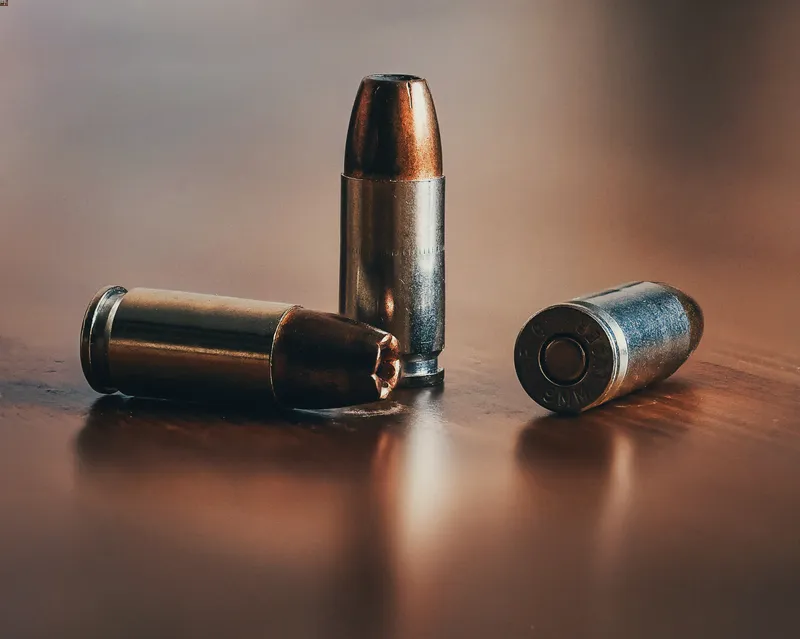Some Known Details About Ammunition Pro Llc
Some Known Details About Ammunition Pro Llc
Blog Article
Not known Incorrect Statements About Ammunition Pro Llc
Table of ContentsSome Ideas on Ammunition Pro Llc You Should KnowThe Single Strategy To Use For Ammunition Pro LlcThe Of Ammunition Pro LlcSome Known Details About Ammunition Pro Llc Ammunition Pro Llc Fundamentals Explained
The basic parts of ammunition coincide for rifle, handgun, and shotgun ammo. Recognizing just how ammo works is a crucial element in being a liable weapon owner. Today we're taking a look at the what the fundamental components of ammunition are and how they interact to terminate a round. The standard parts of ammunition shown on a 9mm. ammunitions for sale round.The bullet is seated in the open end of the case. When you terminate a bullet out of a semi-auto gun, the gun's extractor raises the instance from the firing chamber and it flies out of the weapon.
A weapon's firing pin strikes a cartridge's guide. The primer is a steel cup that holds an explosive chemical substance. When the firing pin strikes the guide cap, it squashes the priming compound versus the anvil. This develops a little explosion in case that sparks the propellant. The primer lies in the edge of the case of a rimfire cartridge.
5 Easy Facts About Ammunition Pro Llc Explained
Gunpowder next to the instance that commonly contains it. It is generally a mixture of saltpeter, charcoal, and sulfur.

We call the projectiles for shotshells, which we terminate through shotguns, slugs and shot. A slug is one solid item, normally constructed out of lead. Shot is a group of pellets made out of lead, steel, bismuth, or tungsten alloy. Shot pellets can come in various sizes and amounts. Now that you have a basic understanding of the standard components of ammunition, you can feel a bit more positive in how your weapon and ammunition feature!.
Not known Details About Ammunition Pro Llc
Keep up with Special Deals, Advance Notification of Sales, and Shop Occasions
Enjoyable fact: Grains are utilized to explain the mass of a bullet due to the fact that right back in the very early days of guns, it was a dispenser's unit of measurement, and a common denominator was required to identify just how much lead to use to make actors lead bullets (Ammunition Pro LLC). 'Grains' as an unit of action for weight goes all the means back to old times, and stands for the weight of a grain of wheat

(https://trello.com/w/ammunitiondde/members)For recommendation, the weight of a paper clip has to do with 16 gr. So, we understand that grains are a measure of mass, and a lot more = larger, and heavy is excellent, appropriate? Yes, heavy is excellent, but mass of the projectile isn't the only thing you need to take into consideration when choosing a round for your firearm.
Ammunition Pro Llc for Beginners
Enjoyable reality, this is the beginning of the term "Rifle" ex-spouse. The impact this spin has on projectiles is a maintaining one the bullet revolving maintains the nose pointed right, in the very same method that a perfectly spiraled football throw is going to be much a lot more secure and exact in flight than an ugly duck, end over end toss.
Exactly how does this associate to grain weight? Imagine you're on one of those play area slide carousels, the ones with bars you hold on to while it spins.
The very same result happens with bullets. The heavier the projectile, the more effect a quicker rotate will have on it.
The 8-Second Trick For Ammunition Pro Llc
There's one more element that we have to think about when picking a grain weight for our ammunition. As hinted at above, bullet velocity, or the speed of the projectile, is a significant factor when identifying the very best grain weight projectile to make use of. Rate is influenced by a few significant factors, including the kind and amount of propellant (gunpowder), barrel size, and bullet weight.

One of the most common grain weight rounds for 9x19mm cartridges are 115gr and 124gr. These are commonly lead core, completely jacketed (FMJ) rounds. Both of these grain weight cartridges will certainly carry out well in manufacturing facility 9mm handguns, to typical pistol ranges (up to 50 yards). 115 grain rounds are the most common (and as a result least expensive).
Report this page